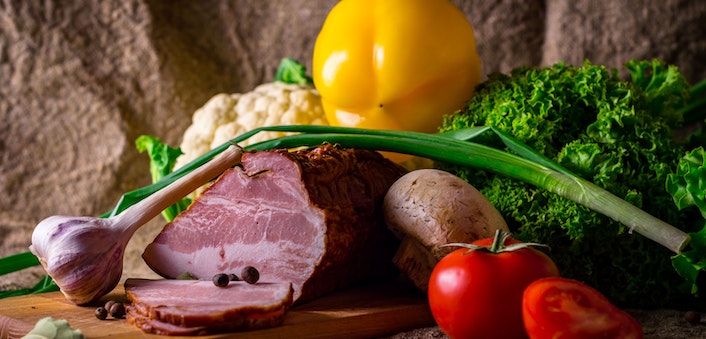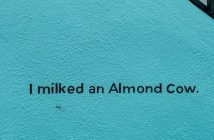MooMoo Week? What’s that?
MooMoo Week is a challenge where you completely cut out meat from your diet for a week and go vegan or vegetarian. It is a new annual initiative that encourages the reduction of your carbon footprint through decreased meat intake. This year I participated in the challenge at my school and went vegetarian for a week. In fact, I tried tofu for the first time and absolutely loved it.
I chose to participate in the challenge this year to try something new, and because reducing my meat intake is one of the most efficient ways to reduce my carbon footprint. MooMoo week was rewarding, and it has pushed me to eat a minimum of one vegan/vegetarian meal a day.
Initially, cutting out meat from my diet took a toll on my body; I became tired quite easily and felt slightly weaker. I eventually realized that due to the lack of meat, I wasn’t getting any protein. Therefore, I began to eat larger servings of other protein-based foods like beans and tried out new ones such as tofu to regain my strength. Overall the change in diet was not very drastic. I didn’t crave meat nor felt as if I couldn’t survive without it. However, I will admit that I got jealous of those surrounding me eating meat, such as fried bacon and ham from time to time. In truth, the hardest part of the challenge was finding something to eat in my school canteen. I would often have to compromise and purchase a meal containing meat, and I’d set it aside for a friend.
Effects of cutting out meat from your diet

Vegetables vs. Meat
Reducing meat intake can have a significant impact on your health and the health of our planet. Eating less meat and more plant-based products helps solve livestock production issues, such as climate change, air pollution, and soil pollution. The land usage of meat and greenhouse gas emissions created from meat production has a detrimental effect on our environment. Globally, animal agriculture produces approximately 15% to 20% of greenhouse gases. One of the most efficient ways to reduce our carbon footprint is by reducing our meat and dairy consumption. Moreover, if just one person gave up their burgers, bacon, and nuggets, that single person would save 162,486 gallons of water annually.
Cutting out meat does not only make our planet greener, but it also offers health benefits, and you save more money in the long run. Foods such as red meat are the largest source of saturated fats in a diet. Cutting down on meat or eliminating it reduces multiple health risks such as heart disease.
However, I strongly advise those with previous dietary and health conditions to take precautions or consult with their doctor before cutting out meat. Reducing or eliminating your meat intake is only healthy if you gain enough sustenance from other nutritious foods.
What do the organizers have to say about MooMoo Week?

The organizers of MooMoo Week 2020 are named Isaac Lim and Zoe Nai. The two sixteen-year-olds held the challenge for the first time last year with their peers and decided to do it again this year. I reached out to them and asked them about this year’s success.
What motivated you to create MooMoo Week?
Nai: MooMoo week started off as a small global perspectives project. We knew we wanted to do something related to sustainability and our carbon footprints, so we thought, what could WE do in our community. So we decided to focus on food waste, something we were able to try to make a difference in our community.
Lim: MooMoo Week was created, actually, for a small scale school project. Our idea was simple: how best could we help reduce the carbon footprint of the school? Our answer to this question was MooMoo week- a simple, seven – day challenge in which you attempt to go vegan or vegetarian.
What are some of the benefits to Moo Moo Week?
Nai: MooMoo Week is actually a very simple task, but it requires a lot of commitment. It helps others notice how much meat they consume, and could also lead to better awareness of what you eat.
Lim: MooMoo Week is about a lot more than this one week. After the week, our participants carry on taking the cost of environmental destruction into account not just when eating, but also in all of their purchases and decisions. We have to recognize our incredible economic privilege, the luxury we have of being able to pick and choose lower-carbon products. Not everyone can go vegan for a week, but we can, and maybe we should.
How successful was Moo Moo Week this year?
Nai: MooMooWeek was really successful this year, better than what we had expected. We got way more participants and way more people that made it to the end.
Lim: We were blown away by the support this movement gathered this year- we doubled our goals, with students and teachers from every grade at school pledging to go vegan or vegetarian. This action seems small, but when you consider the number of people who signed up and how they’re going to carry on thinking about carbon footprint, you see the huge impact.
KEEP READING: Pushing the Bun-velope: Some of Burger Fest’s Most Unique Creations in The Beijinger
Photos: Pexels, Unsplash




